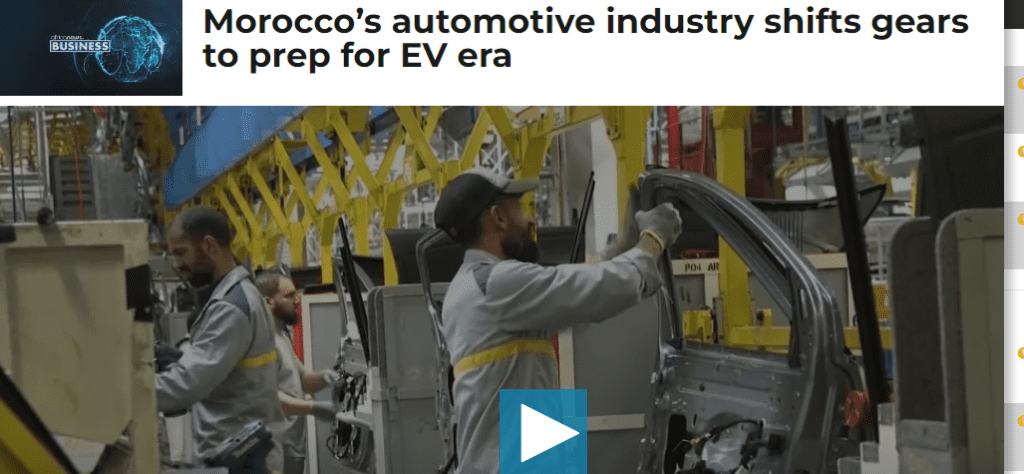Thousands of new cars are parked at Renault’s large car lot on the outskirts of Tangier, waiting to be transported to Europe through the port of Tanger Med.
These cars show how successful Morocco’s car industry has become, breaking records every year in both production and exports.
“It’s the most competitive and eco-friendly platform for car production worldwide. This is what makes Morocco an attractive option for building cars.
In 15 years, Morocco grew from not exporting any cars to being able to produce 1 million cars per year by 2025,” said Ryad Mezzour, Morocco’s Minister of Trade and Industry.
Morocco is home to over 250 companies that make cars or car parts. French carmaker Renault, the largest private employer in Morocco, calls the country “Sandero-land” because it produces nearly all of its Dacia Sandero models there.
The Moroccan government is eager to keep its position as a top car manufacturing hub by attracting electric vehicle (EV) projects. The car industry now makes up 22% of the country’s GDP and brings in $14 billion in exports.
Without some of the bureaucratic delays common in other countries, Morocco offers companies looking to move production abroad the chance to build factories quickly, sometimes completing projects in just five months.
Mezzour highlighted that Morocco stands out from other outsourcing destinations by expanding its ports, free trade zones, and highways.
The government also offers subsidies of up to 35% for manufacturers setting up factories in rural areas near Tangier, where Renault produces models like the Clio and Dacia Sandero, which is the most popular car in Europe. They will soon start producing hybrid Dacia Joggers as well.
In Tangier’s Automotive City, a large complex of car part manufacturers, companies from China, Japan, the U.S., and Korea make parts like seats, engines, and wheels. Stellantis produces Peugeots, Opels, and Fiats in its Kenitra factory.
As Europe phases out traditional gas engines over the next decade, companies like Renault are preparing to adjust production in Morocco.
Mohamed Bachiri, head of Renault’s operations in Morocco, said the company’s success there has made the country an attractive place for investment, especially for EVs.
“Morocco has become a key part of Renault’s global strategy. We have an annual production capacity of 440,000 vehicles, which will grow to 500,000 by 2025. The ‘Made in Morocco’ cars will be exported to more than 70 countries,” said Bachiri.
Morocco’s focus on building a strong car industry, which began with a 2014 industrialization plan, has created thousands of jobs. Mezzour said he and his predecessors have worked to ensure Morocco offers more than just cheap labor to foreign companies.
“My priority is to create jobs. To do that, I need to make the companies that create jobs happy, so they keep coming back to invest more,” he explained.
While factory workers in Morocco earn less than their European counterparts, the jobs still pay better than the average income in Morocco. The car industry employs 220,000 people, which helps offset the loss of over 200,000 agricultural jobs due to a six-year drought.
Morocco is attracting investment from both East and West, with the goal of mass-producing affordable electric vehicles. Chinese electric vehicle giant BYD has announced plans to build factories in Morocco, although these plans have been delayed. China’s Ambassador to Morocco, Li Changlin, said Morocco is appealing to Chinese companies because of its geographic location, stable environment, and skilled but affordable workforce.
However, as the U.S. and Europe push to bring EV production back to their own countries, Morocco’s future in this sector is uncertain. Western nations that once encouraged free trade are now enacting policies to protect their own EV industries.
The U.S. and France, for example, passed tax credits last year for consumers who buy EVs made domestically. While Morocco benefits from a free trade agreement with the U.S., these new policies have made the global supply chain more complicated for countries like Morocco.
“We’re dealing with a lot of instability in trade rules, which makes it harder for countries like Morocco that have heavily invested in open, free trade,” Mezzour said.




















